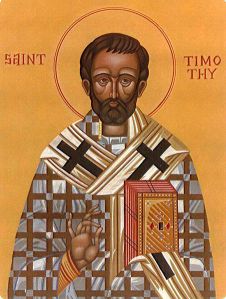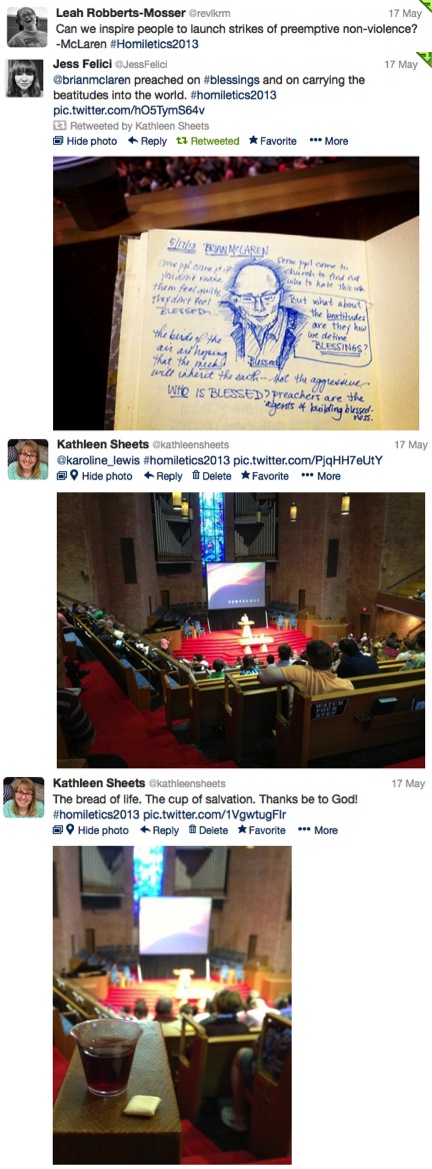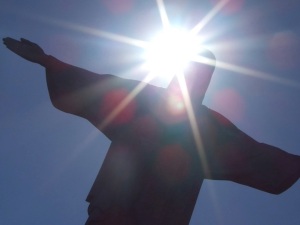“Much Forgiveness, Much Love”
Luke 7:36-8:3
 In our scripture today, the primary character of our story is given a strange introduction, “a woman in the city, who was a sinner.” Reading that this week I thought, “hm, well that narrows it down.” Growing up in faith with the understanding of Romans 3:23, that is that, “all have sinned and fall short of the glory of God,” to me this distinction is a funny one, basically just saying she was human, not divine. But in this specific account her status as “sinner” is different from the general sense of humanness that we all carry around with us, it was part of this woman’s identity, part of what made her very presence and actions towards Jesus unwelcome by the Pharisee who was hosting Jesus that day.
In our scripture today, the primary character of our story is given a strange introduction, “a woman in the city, who was a sinner.” Reading that this week I thought, “hm, well that narrows it down.” Growing up in faith with the understanding of Romans 3:23, that is that, “all have sinned and fall short of the glory of God,” to me this distinction is a funny one, basically just saying she was human, not divine. But in this specific account her status as “sinner” is different from the general sense of humanness that we all carry around with us, it was part of this woman’s identity, part of what made her very presence and actions towards Jesus unwelcome by the Pharisee who was hosting Jesus that day.
However, her interaction with Jesus is not an extension of her sinfulness, as the Pharisee seems to believe, rather it is a response of abundant joy and love. Jesus tells the Pharisee, “her sins, which were many, have been forgiven; hence she has shown great love.”
 One of the criticisms I’ve heard about Christianity in general and worship in particular, is that we spend too much time dwelling on our sins, on our failures, on the ways that we have fallen short of the glory of God. To me, I find the time we spend in worship focused on the confession of sins to be one of the most life giving parts. When else in our daily lives do we stand up in a crowd and confess that we have been wrong? Where else do we receive such complete forgiveness? How are our lives changed by receiving God’s grace in this way?
One of the criticisms I’ve heard about Christianity in general and worship in particular, is that we spend too much time dwelling on our sins, on our failures, on the ways that we have fallen short of the glory of God. To me, I find the time we spend in worship focused on the confession of sins to be one of the most life giving parts. When else in our daily lives do we stand up in a crowd and confess that we have been wrong? Where else do we receive such complete forgiveness? How are our lives changed by receiving God’s grace in this way?
 Historically confessions of sin have taken place throughout one’s community and personal life. Puritans wrote extensively detailed private diaries to allow them to confess their sins to God. These diaries were so thorough and so personal that they were most often burned at the time of the person’s death. Before there was a professional priesthood, Christians would gather together and confess their sins to one another to pray for each other’s healing. In the Catholic tradition priests use confessional booths to hear the confessions of their parishioners.
Historically confessions of sin have taken place throughout one’s community and personal life. Puritans wrote extensively detailed private diaries to allow them to confess their sins to God. These diaries were so thorough and so personal that they were most often burned at the time of the person’s death. Before there was a professional priesthood, Christians would gather together and confess their sins to one another to pray for each other’s healing. In the Catholic tradition priests use confessional booths to hear the confessions of their parishioners.
It seems our society these days is filled with opportunities for confession.  One-camera “confessionals” are part of nearly every reality show misconstruing the term “confession” as a venting of frustrations with another or rare moments of self-reflection.
One-camera “confessionals” are part of nearly every reality show misconstruing the term “confession” as a venting of frustrations with another or rare moments of self-reflection.  Social media allows for quick opportunities to reveal our thoughts to whoever will listen. Many we interact with day to day receive our confessions: hairdressers, bartenders, and strangers in lines.
Social media allows for quick opportunities to reveal our thoughts to whoever will listen. Many we interact with day to day receive our confessions: hairdressers, bartenders, and strangers in lines.
While there is nothing inherently wrong in this self-reflection, we should be aware of our motivation for these confessions. Are we simply trying to clear our minds? Gain accountability or advice from someone we trust? OR are we seeking forgiveness from God and other’s we have hurt out of a repentant heart?
 It’s often a blessedly strange moment when I’m out in public and people find out I’m a pastor. I have been privy to many a confessional: on airplanes, in coffee shops, grocery stores, and just about everywhere else, just by someone learning my title. People often tell me of their church attendance, or lack thereof, confess their desire to strive to be a “good person,” some might tell me of their works in mission.
It’s often a blessedly strange moment when I’m out in public and people find out I’m a pastor. I have been privy to many a confessional: on airplanes, in coffee shops, grocery stores, and just about everywhere else, just by someone learning my title. People often tell me of their church attendance, or lack thereof, confess their desire to strive to be a “good person,” some might tell me of their works in mission.
Often I want to ask, “Why are you telling me?” But then I remember who this position calls me to be. Over the centuries the role of clergy has been as a medium to God’s grace. In the Presbyterian Church we uphold a “priesthood of all believers,” which means that each of us can ask for God’s forgiveness directly/ However, it can be a daunting thing to approach God in confession, and so pastors and other clergy become a proxy.
Though these unsolicited confessions can lead to very interesting and insightful conversations, they most often seem like a defensive response, sort of a “making this right,” rather than the thought out contrition of a penitent heart. On the occasion that these conversations become a bit deeper they can lead to some pretty profound views of how those outside a church home view the church and their relationship to God. Many tell me that they don’t go to church because they’re just too busy or haven’t found a church community where they feel at home.
 Confession has long been one of my favorite parts about being a part of a worshipping community. I love the beautiful vulnerability of standing in a room filled with people of all ages and life stages and confessing our brokenness to God and one another.
Confession has long been one of my favorite parts about being a part of a worshipping community. I love the beautiful vulnerability of standing in a room filled with people of all ages and life stages and confessing our brokenness to God and one another.
Imagine what would happen if we went out to other places and relationships in our lives and confessed this same brokenness. Imagine how the world could be changed if we all admitted our mistakes and the ways we create intentional distance in relationship. What a strange and wonderful world that would be.
 So what is it that we’re even doing when we confess our sin? Do we think that our confessions will surprise God? Do we think that our words undo the hurt that we’ve caused to ourselves or to others? Why do so many of us have such an urgent desire to confess our sinfulness? Why is “making things right with God” such a priority?
So what is it that we’re even doing when we confess our sin? Do we think that our confessions will surprise God? Do we think that our words undo the hurt that we’ve caused to ourselves or to others? Why do so many of us have such an urgent desire to confess our sinfulness? Why is “making things right with God” such a priority?
Psalm 139:1-3 says, “O Lord, you have searched me and known me. You know when I sit down and when I rise up; you discern my thoughts from far away. You search out my path and my lying down, and are acquainted with all my ways.”
God knows us intimately; there is nowhere we can go that is apart from God. God surrounds our action and knows our hearts. God is well aware of each and every sin we have committed. God knows when we have willingly chosen other paths.
In 1 John 1:9 we hear, “If we confess our sins, God is faithful and just, and will forgive our sins and cleanse us from all unrighteousness.”
James 5:16 says, “Confess your sins to one another, and pray for one another, so that you may be healed.”
When we confess our sins it is not God who discovers our sinfulness, but rather it is our eyes that are opened to the presence of those sins and we begin the journey beyond our sinfulness.
 The woman in our story today is overjoyed by the forgiveness she received through Jesus. So much so that she can’t help but have her joy spill out, washing, kissing, and anointing Jesus’ feet, with no regard for how people may perceive her actions. She seems to really get what is going on there, that by being forgiven her story changes, her identity changes. She is no longer shackled by the sin that had so long defined her.
The woman in our story today is overjoyed by the forgiveness she received through Jesus. So much so that she can’t help but have her joy spill out, washing, kissing, and anointing Jesus’ feet, with no regard for how people may perceive her actions. She seems to really get what is going on there, that by being forgiven her story changes, her identity changes. She is no longer shackled by the sin that had so long defined her.
Psalm 32 says “While I kept silence, my body wasted away through my groaning all day long. For day and night your hand was heavy upon me; my strength was dried up as by the heat of summer.” But then the Psalmist is turned in verse 5: “Then I acknowledged my sin to you, and I did not hide my iniquity; I said, “I will confess my transgressions to the Lord,” and you forgave the guilt of my sin.”
Presbyterian Pastor Lindsay P. Armstrong wrote, “Focusing on fault and magnifying its importance is not confession but megalomania, as if we know better than God does that we are undeserving of forgiveness. Such a posture narcissistically keeps the focus on our actions, when what God has done and continues to do is far more important. It involves refusing forgiveness and features failure to follow God’s lead into fresh ways of living.”
 Confession is ultimately not about us, or what we’ve done. It’s not about us knowing what exactly made the woman in our story be so clearly defined as a sinner. Confession is about being drawn to reconciliation, it is about responding to God’s great love and God’s desire to be in relationship with us. Confession is about acknowledging what we’ve done, but then moving past it so that we can be open to what God desires to do through us.
Confession is ultimately not about us, or what we’ve done. It’s not about us knowing what exactly made the woman in our story be so clearly defined as a sinner. Confession is about being drawn to reconciliation, it is about responding to God’s great love and God’s desire to be in relationship with us. Confession is about acknowledging what we’ve done, but then moving past it so that we can be open to what God desires to do through us.
2 Corinthians 5:18-19 says, “God reconciled us to Godself through Christ and has given us the ministry of reconciliation, that is, in Christ God was reconciling the world to Godself, not counting their trespasses against them, and entrusting the message of reconciliation to us.“
What do we do in worship each week after our confession? We are assured of our forgiveness and then,  we pass God’s peace to one another. When we know we are forgiven, we are compelled to respond, taking that peace that we have received from God and extending that peace to one another.
we pass God’s peace to one another. When we know we are forgiven, we are compelled to respond, taking that peace that we have received from God and extending that peace to one another.
 The woman in our story knew that. Once forgiven she couldn’t keep bear to keep it to herself. Knowing that we have received God’s abundant forgiveness, may be we so compelled to respond. Amen.
The woman in our story knew that. Once forgiven she couldn’t keep bear to keep it to herself. Knowing that we have received God’s abundant forgiveness, may be we so compelled to respond. Amen.


































































































































































